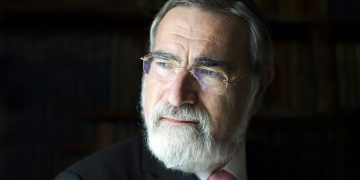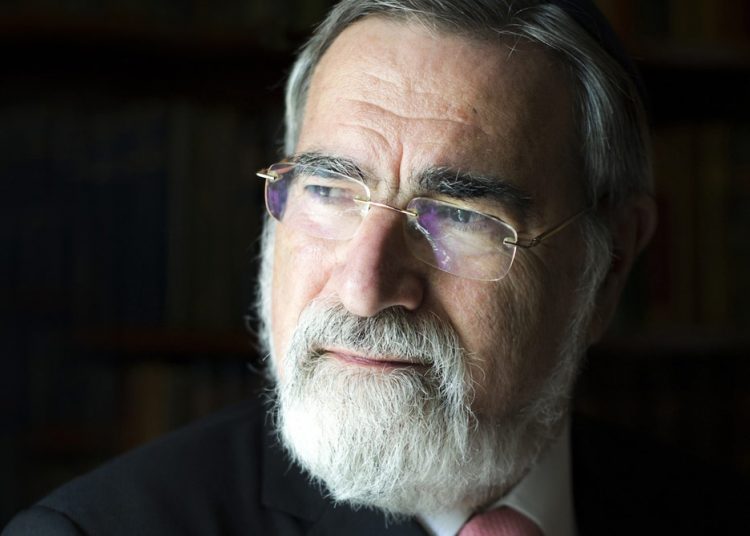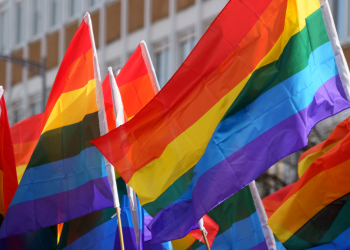With the recent passing of Rabbi Jonathan Sacks, Judaism has lost one of its leading lights and the world has lost one of its most powerful moral voices. Described by American University Professor Akbar Ahmed as “one of the great sages of the Abrahamic faiths,” Rabbi Sacks was an international religious leader, philosopher, theologian, author, and politician who served as Chief Rabbi of the United Kingdom and the Commonwealth of Nations, member of the House of Lords after being knighted, professor at New York University, Yeshiva University, and King’s College London, and Senior Fellow to the Raoul Wallenberg Centre for Human Rights. He received numerous awards for his work, including
- 18 honorary doctorates;
- a Bradley Prize for being “a leading moral voice in today’s world”;
- the Templeton Prize for his role in advancing public appreciation for the spiritual values of all faiths;
- the Irving Kristol Award from the American Enterprise Institute for his “remarkable contributions to philosophy, religion, and interfaith discourse… as one of the world’s greatest living public intellectuals”; and
- the Becket Fund’s Canterbury Medal for his role in the defence of religious liberty in the public square—the same honor bestowed on such notables as Elie Wiesel, Charles Colson, Archbishop Charles Chaput, and IOF’s own honorary board member, President Dallin H. Oaks.
Rabbi Sacks was also an eminent biblical scholar, renowned public speaker, and prolific author of 37 books, including Morality, published just months before his passing on November 7, 2020. According to NYU Professor Jonathan Haidt, “If the prophets of the Hebrew Bible came back to guide liberal democracies and anxious citizens through this difficult time, but first they studied modern history and social science, this is the book they would write for us.” Distilling the wisdom of Rabbi Sacks’ remarkable lifetime of learning and service, the book offers a sure guide to a faltering world. “A free society is a moral achievement,” he explains, and the essence of morality is “a concern for the welfare of others” along with “a willingness to ask not just what is good for me but what is good for ‘all of us together.’ It is about ‘Us,’ not ‘Me’; about ‘We,’ not ‘I.’”
Unfortunately, continues Rabbi Sacks, “there has been too much individualism and too little of the moral bonds that lie at the heart of friendship, family, and community”—bonds which “make us larger than we would be if we focused on self-interest alone.” And here he waxes personal in telling of the experience that changed his life. “As I write these words, Elaine and I are looking forward to our golden wedding anniversary. In the TED Talk I gave in 2017, I spoke about our first meeting. It took place in Cambridge, England, where I was a philosophy student… One day early in my final year I saw, across a college courtyard, a girl who was everything I was not. She smiled, she radiated sunshine, she was full of joy. It took me three weeks to put aside metaphysics and say, ‘Let’s get married.’ Forty-nine years, three children, and nine grandchildren later, I know it was the best decision of my life, because it’s the people not like us who make us grow. Marriage is the supreme embodiment of openness to otherness.”
It is also the facilitator of civilization itself, he insists in an impassioned plea. “The family—man, woman, and child—is not one lifestyle choice among many. It is the best means we have yet discovered for nurturing future generations and enabling children to grow in a matrix of stability and love. It is where we learn the delicate choreography of relationship and how to handle the inevitable conflicts within any human group. It is where we first take the risk of giving and receiving love. It is where one generation passes on its values to the next, ensuring the continuity of a civilization. For any society, the family is the crucible of its future, and for the sake of our children’s future, we must be its defenders.”
Rabbi Sacks’ clarion call is part of a chorus of voices by religious leaders such as Pope Francis, who declared, “Every threat to the family is a threat to society itself…. The future of humanity passes through the family. So protect your families! See in them your country’s greatest treasure and nourish them always.” Likewise President Russell M. Nelson, speaking at our World Congress of Families in Amsterdam, warned, “On all sides, the family is under attack. Many wonder if the institution is no longer needed. Our response is certain. If there is any hope for the future of nations, that hope resides in the family. Our children are our wealth; our children are our strength; our children are indeed our future!” We invite you to join with IOF in answering the call of these visionary leaders as we accelerate our work at the forefront of defending the family.




















Discussion about this post